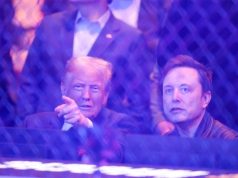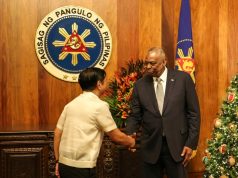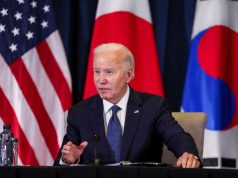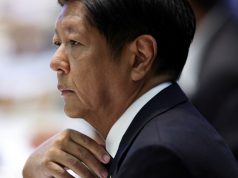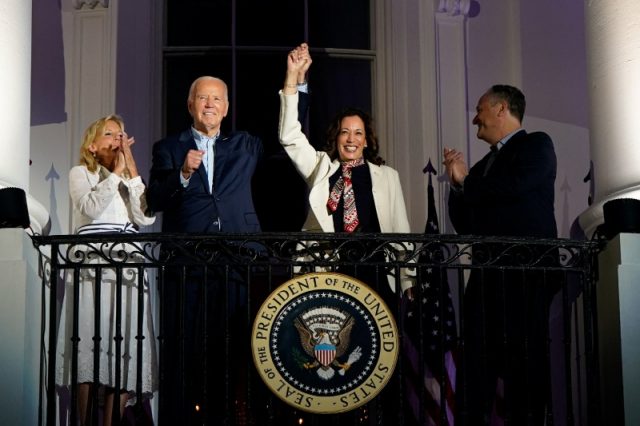
WASHINGTON — U.S. foes targeting November’s election with influence operations are expected to adapt to presidential contest developments, a U.S. intelligence official said on Monday, in an apparent reference to Joe Biden dropping his reelection bid.
The official said unidentified foreign actors were especially focused on “events that occurred this month regarding the presidential race”, without referring directly to President Biden’s decision to withdraw.
The official’s comments indicated that U.S. intelligence agencies expect foreign actors to refocus their influence operations on Vice President Kamala Harris, whom Biden endorsed as the Democratic Party standard bearer.
“We expect these actors to adjust to these events and incorporate them into their influence narratives, seeking to undermine democratic institutions,” the official said, without identifying the foreign actors.
Biden, 81, ended his flagging reelection bid on July 21 under growing pressure from fellow Democrats and tapped Harris as the party’s candidate to face Republican Donald Trump, reshaping the race for the Nov. 5 presidential election.
Briefing reporters, the official from the Office of the Director of National Intelligence cited reports from non-government groups that foreign actors had already used the July 13 attempted assassination of Trump “as part of their narratives”.
A senior intelligence official said that Tehran and Moscow maintain their same presidential preferences as in past cycles, whereas Iranian operatives are attempting to tear down the Republican ticket while Russia has made efforts to smear the Democrats, according to prior intelligence community assessments.
The Iranian mission to the United Nations denied in an email that Iran engages in any “activities intended to influence the U.S. election” and said that many such accusations are “characterized by psychological operations designed to artificially pep up election campaigns.”
The Russian embassy did not respond immediately to a request for comment.
In the past, Russia and Iran have tried employing actual Americans in their operations through false front companies and third-party websites. Doing so provides them with cover and offers a more authentic voice, another official explained.
U.S. foes targeting the U.S. election are also outsourcing influence operations to marketing and communications firms, with Moscow using Russia-based influence-for-hire companies to shape U.S. public opinion.
There are also a variety of similar firms across Latin America and the Middle East, officials said, which may be employed to obfuscate responsibility.
Meanwhile, Chinese government entities are using a China-based technology company to enhance covert influence operations in the United States, the official said. While the Chinese government probably is not planning to influence the U.S. election outcome, it is leveraging social media to sow divisions among Americans, they added.
A Chinese embassy spokesperson said in an email that China does not interfere in other countries’ internal affairs, has “no intention and will not interfere in the U.S. election” and hopes the United State will not make China an election issue.
—Reporting by Jonathan Landay and Christopher Bing; Editing by Tomasz Janowski and Stephen Coates





